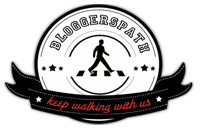If you work remotely – whether at home, at another office, or at your local coffee shop – and you access the internet on an unprotected network, you could be putting your sensitive information at risk.
Having your intellectual property stolen and leaked or sold online is a very real problem for UK businesses – figures from the latest Global Business Outlook Survey found that 96% of companies have fallen foul of computer hackers.
These security breaches are usually a result of poor security practices by employees, with the use of public wifi seen as one of the main problems.
The problem with public wifi
Internet connectivity is now an essential part of everyday life – we are all constantly connected and in communication with each other via our computers, laptops, smartphones or other mobile devices, and the availability of public wifi plays a massive part.
The trouble is, though, public wifi is exactly that – if offer no real privacy at all.
This means that if you’re using company hardware on a public network and you don’t use a virtual private network (VPN) to encrypt and protect the data, you run a very real risk of exposing it to hackers.
And once the hackers are in, they can help themselves to anything stored on your device, including usernames, passwords and any other sensitive information that can then be used to profit themselves or bring down your business.
If your intellectual property is infringed in this or any other way, you’ll then need to employ a legal firm to state your case in court, that’s if you can even prove an infringement has taken place. For more information about the actual laws relating to intellectual property crimes and infringement in the UK, here are the government guidelines.
So it’s best to just make sure you stay secure.
How to stay secure online
If you’re working remotely or using a device with any sensitive information on a public network, it’s vital you do everything you can to keep it secure from hackers.
Here’s how to stay secure online:
- Always use a virtual private network (VPN) when using public wifi. If you don’t use a VPN, assume everything you are doing is out in the open for anyone to see.
- Make sure your device doesn’t automatically connect to any public wifi hotspots. To make sure this doesn’t happen, delete all public wifi access points once you’ve used them.
- When accessing a business’s wifi, at a coffee shop for instance, always ensure the login details you are given are genuine and have not been replaced by a hacker’s network.
- Make sure all passwords are strong and complex, particularly on important accounts and documents.
- Never click on any links, whether on a website or in an email, without first checking they go to where they say they’re going. To check the integrity of a link, simply hover over it to check the destination URL – if it doesn’t look right, don’t click it.
- Always make sure you have a safe connection by checking for ‘https’ at the start of any URLs and a padlock symbol in the browser bar.
- Check the permission of your apps to see what information you are sharing online, then adjust these permissions accordingly.
- Make sure all of your systems and applications are fully updated and have the latest security patches and updates installed.
The key to protecting your data and intellectual property from hackers is to simply remain vigilant at all times, especially when working away from the office.





